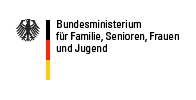Organisational development - Gender aspects
Organisational Development - Gender aspects
- Organisational cultures: Values and behaviour are very often stereotyped and connoted as masculine. If you want to succeed you have to fit in. But GM turns this round – male and female staff no longer have to fit in with the organisational culture, but the organisational culture is shaped by the diversity of the staff. A proactive gender equality policy is needed to change organisational culture.
- Products: If an organisation systematically uses GM to integrate gender perspectives into product design, they will be more suited to their target groups and thus their quality will be improved. One example is print and online presentations. These can deliberately be designed in such a way that women and men are both addressed and they can break down gender stereotypes instead of reproducing them. This gives the organisation an innovative and positive external image.
- Efficiency: In an economy that is geared to service industries, the efficiency of an organisation is increased if capabilities that are traditionally connoted as feminine, such as communication and team work, are actively promoted and honoured. Moreover, women are potentially well-trained specialist staff who are frequently not adequately taken into consideration for staff selection, career promotion and allocation of competencies. On the other hand, men can be assigned tasks on the basis of stereotypical expectations that are unrealistic. Active equal opportunities policy can bring about more efficient ways of dealing with personnel resources.
- Management: There is a shortage of qualified management staff. But in many organisations the number of women decreases as levels of hierarchy rise, even though their qualifications are as good if not better. Upwardly mobile women managers often hit the “glass ceiling” that bars their access to top management. GM supports organisations in opening male-dominated informal structures, “old boys’ networks” and male management cultures to women without denigrating them as “token women”. This process of cultural change replaces stereotypes with individual abilities.
- Segregation: There is a gender-specific segregation of the employment market in working life which involves gender typing of jobs. If the gender typing of the job and the person’s gender do not match, the result is discrimination. Moreover, jobs with “female” gender typing are generally undervalued in terms of status and income instead of performance being properly rewarded.
- Compatibility: Organisations are reproduction blind, that is they bracket out caring work such as cooking, washing and child and nursing care that is connoted as female from their own context in the tacit assumption that someone else will do it and it is therefore insignificant for their operational and organisational processes. GM in OD is concerned with matching operational requirements with individual needs in such a way that both the organisation and the staff gain from this.
Further reading:
Pasero, Ursula/ Priddat, Birger P. (Ed.): Organisationen und Netzwerke: Der Fall Gender, Wiesbaden 2004.
Pasero, Ursula (Ed.): Gender - From Costs to Benefits, Wiesbaden 2003.
Andresen, Sünne/ Dölling, Irene: Geschlechter-Wissen in Organisationen: Einblicke in dei Deutungsmuster leitender Fachbeamter einer Berliner Kommunalverwaltung, in: Edeling, Thomas/ Jann, Werner/ Wagner, Dieter (Ed.): Wissensmanagement in Politik und Verwaltung, Wiesbaden 2004, S. 89-110.
European Commission: Gender Mainstreaming in the Joint Inclusion Memoranda for the future Member States - Practical Guide.
Krell, Gertraude (Ed.): Chancengleichheit durch Personalpolitik. Gleichstellung von Frauen und Männern in Unternehmen und Verwaltungen. Rechtliche Grundlagen - Problemanalysen - Lösungen, Wiesbaden 1998.
Höying, Stefan/ Puchert, Ralf: Die Verhinderung der beruflichen Gleichstellung. Männliche Verhaltensweisen und männerbündische Kultur, Bielefeld 1998.
Höying, Stefan: Männerbündische Arbeitskultur am Beispiel Personalpolitik, 1999.
Cockburn, Cynthia: Blockierte Frauenwege. Wie Männer Gleichheit in Institutionen und Betrieben verweigern, Argument-Sonderband Neue Folge 212, Hamburg 1993.
Lange, Ralf: Männer - Macht - Management. Zur sozialen Konstruktion von hegemonialer Männlichkeit im Management von Organisationen, in: Multioptionale Männlichkeiten? Widersprüche, Heft 67/1998, S. 45-61.
Lange, Ralf: Männlichkeit(en), Macht, Management. Zur sozialen Konstruktion von hegemonialer Männlichkeit im Management von Organisationen, Impuls-Referat für den Workshop "Organisationsentwicklung, Personalentwicklung und Chancengleichheit" im Rahmen der Fachtagung "Geschlechterdemokratie in Organisationen" am 11. Juni 1999 in Frankfurt.
Döge, Peter: Managing Gender, in: Aus Politik und Zeitgeschichte, B 33-34/2002, S. 9-16.
Bundesministerium für Wirtschaft und Technologie: Wettbewerbsvorteil Familienbewußte Personalpolitik, Bonn 2001
Krannich, Margaret (ed.), Geschlechterdemokratie in Organisationen, Dokumentation einer Fachtagung vom 10. und 11. Juni 1999 der Hessischen Stiftung für Demokratie und Ökologie, der Heinrich-Böll-Stiftung u.a., Frankfurt a. M. 1999.
Acker, Joan: Hierarchies, Jobs, Bodies: A Theory of Gendered Organizations, in: Lorber, Judith / Farrell, Susan A. (Ed.), The Social Construction of Gender, Newbury Park/London/New Delhi 1991, S. 162-179.






